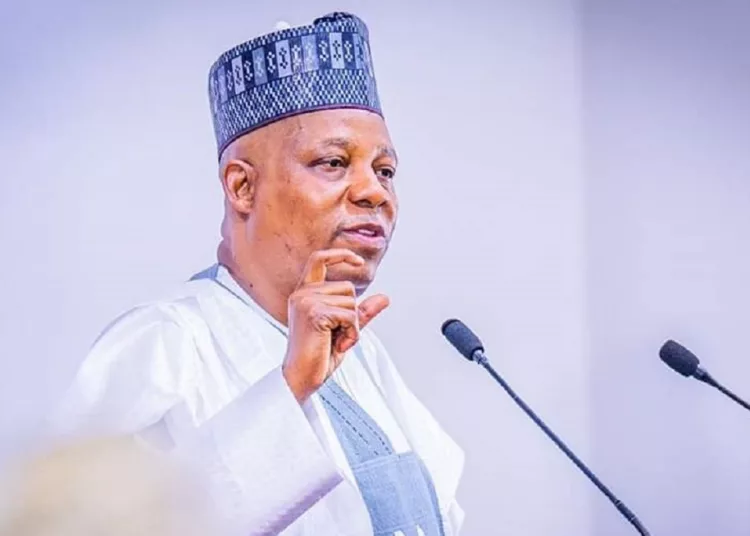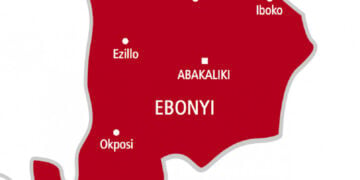Vice President Kashim Shettima has declared the federal government’s resolve to position the nation among top 80 countries on the global Human Capital Index (HCI) by building a healthier, better-educated, and empowered Nigeria.
The task, he said, in a statement by his spokesman, Stanley Nkwocha, is ambitious but quite achievable, just as he called on all Nigerians, including policymakers and community leaders, to embrace the Human Capital Development Programme.
Shettima stated this yesterday while inaugurating the HCD 2.0 Strategy during a meeting of the Steering Committee of the Human Capital Development Programme at the Presidential Villa, Abuja.
He said, “Our targets are ambitious, yet achievable. We aim to position Nigeria among the top 80 countries on the Human Capital Index, reaching a score of 0.6 by 2030.
“These metrics represent more than just numbers; they signify the real change in the lives of our people—access to quality healthcare, improved educational outcomes, expanded opportunities for meaningful employment, and a society that remains resilient in the face of global challenges.
“As we inaugurate HCD 2.0, I call on every Nigerian—policymakers, community leaders, and citizens alike—to recognise the stakes and embrace the promise of this initiative. Building a healthier, better educated, and empowered Nigeria relies on each of us contributing to a legacy of progress and possibility.”
The vice president recalled how Nigeria had faced what he described as a stark reality in 2018 when the nation’s ranking on global human capital indices showed critical gaps in health, education and employment.
The urgency to address the embarrassing situation, according to him, compelled the Nigerian government to prioritise human capital development, leading to the launch of HCD 1.0 to build a healthy, educated, and productive Nigeria by 2030.
Describing the launch of the HCD 2.0 as the beginning of a new phase, Senator Shettima said, “We have laid a strong foundation, and now, we officially launch the second phase of the Human Capital Development strategy—HCD 2.0.
“This initiative represents far more than a programme. It is a national commitment, a promise to the well-being, empowerment, and productivity of every Nigerian. It embodies a vision that speaks to the aspirations of each citizen and affirms our shared goal: a healthier, more educated, and more inclusive Nigeria.”
The VP explained that the goal of the HCD 2.0 Strategy is to make sure no Nigerian is left behind as the nation navigates towards a more inclusive, sustainable society, even as he listed the core pillars of the strategy to include equitable and modern healthcare, an inclusive, functional education system, as well as promotion of financial inclusion nationwide.
He continued: “One of the core pillars of HCD 2.0 is equitable and modern healthcare. We envision a system that reaches every Nigerian, regardless of their location or economic standing. Through digital health platforms, innovative financing, and climate-resilient practices, we aim to create a healthcare system that serves all.
“Alongside healthcare, we are transforming our approach to education. We are committed to fostering an inclusive, functional education system that prioritises digital literacy, gender equity, and financial accessibility.”
In an era of digital transformation, VP Shettima explained that HCD 2.0 is targeted at bridging the digital divide and promoting financial inclusion across Nigeria.
“By advancing fintech solutions, online banking, and digital payment systems, we are creating pathways for every Nigerian to actively participate in the economy,” he added.
The VP stated however that the HCD 2.0 will not be achieved without “a broad governance framework that brings together federal and state leaders, private sector partners, civil society, and development agencies.”
He assured that with the backing of the HCD Programme Steering Committee, which he chairs, as well as leaders from both public and private sectors, the federal government will smoothly and efficiently execute the HCD 2.0 strategy.
Earlier in her presentation, Special Adviser to the President on National Economic Council (NEC) and Climate Change, Rukaiya El-Rufai, said the new programme aims to enhance human capital outcomes by focusing on education, health, and workforce development, building on the progress of its predecessor, HCD 1.0.
We’ve got the edge. Get real-time reports, breaking scoops, and exclusive angles delivered straight to your phone. Don’t settle for stale news. Join LEADERSHIP NEWS on WhatsApp for 24/7 updates →
Join Our WhatsApp Channel










